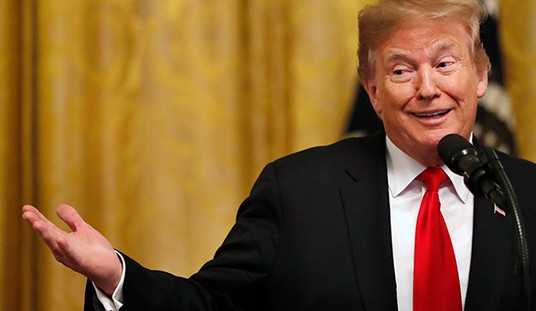I’m usually in agreement with Josh Barro, politics editor at Business Insider, but I think he’s being a little myopic when he cites as a major reason for government snooping the idea that the American people want “zero terrorism”:
The reason programs like these exist and persist isn’t that the government keeps them secret. It’s that our lawmakers tell the public they are necessary to achieve a goal of zero terrorism, which might well be true — and the public considers that a good enough reason.
Sen. Dianne Feinstein (D-Calif.) offered this very succinct justification for the phone records dragnet, in which Verizon and apparently all the other major cellular providers hand over all subscribers’ phone records to the government: “It’s called protecting America.”
Both the public and politicians have been clear: The goal of policies on terrorism is not just to reduce terrorism deaths but eliminate them altogether. Lately, we’ve been getting pretty close. Over the last five years, Americans’ annual odds of dying in a terror attack have been just 1 in 20 million.
If we hope to maintain that record, we had better not have any false negatives in our search for potential terrorists. If the government can’t miss any terrorists, how can it not have a massively overbroad surveillance infrastructure that snoops on all of us?
The perverse impact of zero tolerance for terrorism doesn’t just show up in surveillance. It’s the reason we all have to take our shoes off at the airport, that Boston shut down for a day after the Marathon bombings at a likely cost of over $100 million, and that we invaded Iraq.
We don’t think about other social ills this way. Nobody says we should have a goal of zero heart disease deaths or zero auto accident deaths, because that would be nuts. We balance the objective of saving lives against other considerations, like cost and individual rights and the fact that bacon is delicious.
We should apply this cost-benefit approach to terrorism too. This approach would allow us to say that the phone records dragnet can be a bad idea even if it saves lives. But the big resistance to that analysis doesn’t come from Congress; it comes from the American public.
Mr. Barro raises a couple of important issues. Do the American people really want “zero terrorism?” Or do politicians say that’s what we want and use it as an excuse to ratchet up the Surveillance State? What Barro is really talking about is post-terrorist attack blame — who misses out when the music stops and there aren’t enough chairs for everyone. This is what concerns politicians and, just guessing, many bureaucrats in the intelligence community. “Not on my watch” is as much about rear-end covering as it is a desire to prevent a mass casualty terrorist attack. So, there may indeed be a political angle to surveillance overkill. If that sounds cynical, we get that way with experience. So much over the years has been excused because of “national security” that the term itself has lost meaning.
Also, Feinstein was referring to the phone records dragnet. But there is a qualitative — and quantitative — difference between that NSA program and the internet surveillance program. Having your phone records scanned for a less than a millionth of a second by a dumb brute of a supercomputer, and then spit out never to be accessed again offers the potential for abuse but with adequate safeguards, is only mildly threatening.
But the internet surveillance program sounds more like monitoring than data mining. And that should worry everyone, even if the original target is a terrorist suspect who lives overseas.
Analysts who use the system from a Web portal at Fort Meade, Md., key in “selectors,” or search terms, that are designed to produce at least 51 percent confidence in a target’s “foreignness.” That is not a very stringent test. Training materials obtained by The Post instruct new analysts to make quarterly reports of any accidental collection of U.S. content, but add that “it’s nothing to worry about.”
Even when the system works just as advertised, with no American singled out for targeting, the NSA routinely collects a great deal of American content. That is described as “incidental,” and it is inherent in contact chaining, one of the basic tools of the trade. To collect on a suspected spy or foreign terrorist means, at minimum, that everyone in the suspect’s inbox or outbox is swept in. Intelligence analysts are typically taught to chain through contacts two “hops” out from their target, which increases “incidental collection” exponentially. The same math explains the aphorism, from the John Guare play, that no one is more than “six degrees of separation” from any other person.
I don’t think even the authors of the Patriot Act envisioned such an intrusive program. And that’s a huge part of the problem — one that the American people aren’t even aware. The ability of government to violate our privacy, to access our private records, and to make use of that information have outstripped our ability to write law that draws clear, unambiguous lines that protect our privacy and our liberty. These awesomely complex technologies, placed in the hands of those not so wedded to the letter and spirit of the Constitution as most of our current leaders, has the potential to make a police state of America. And I don’t think the American people want that.
Barro is right that we don’t need “zero tolerance” for terrorist attacks. And he asks a reasonable question about how much security vs. how much liberty. But are the American people asking the same question? They elected a president who had a clear message about changing the entire concept of the war on terror, de-emphasizing it and overturning much of the security infrastructure that President Bush put in place following 9/11. Of course, that didn’t happen, but Obama’s election makes it appear that we don’t have a public eager to pay any price — including their liberty — to be made safe.










Join the conversation as a VIP Member